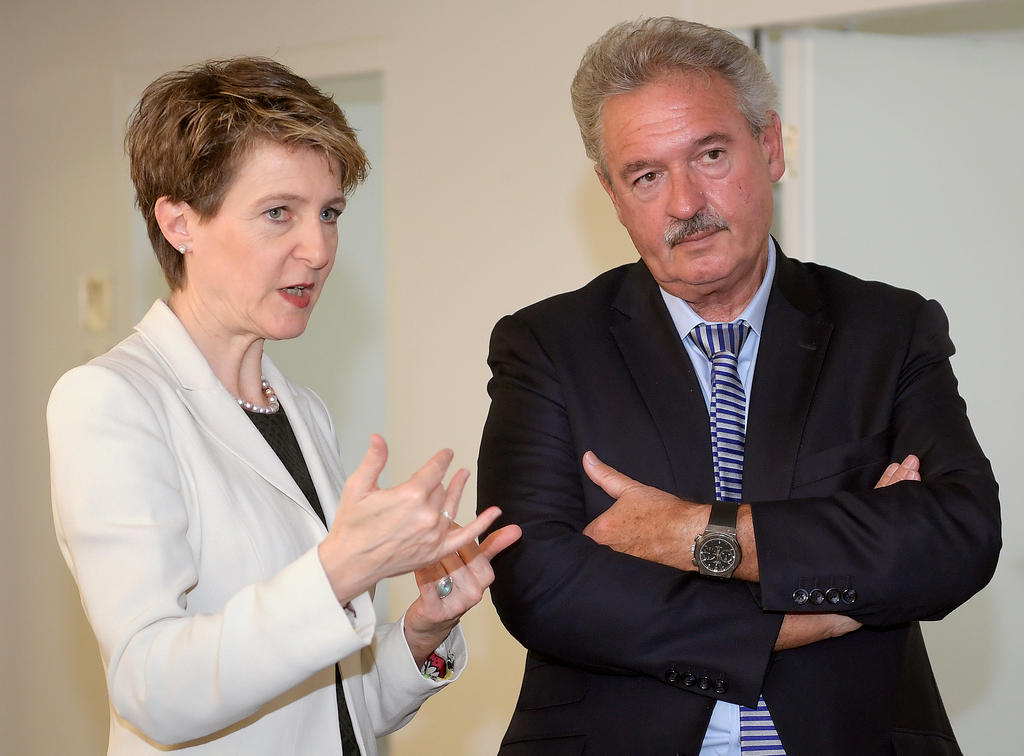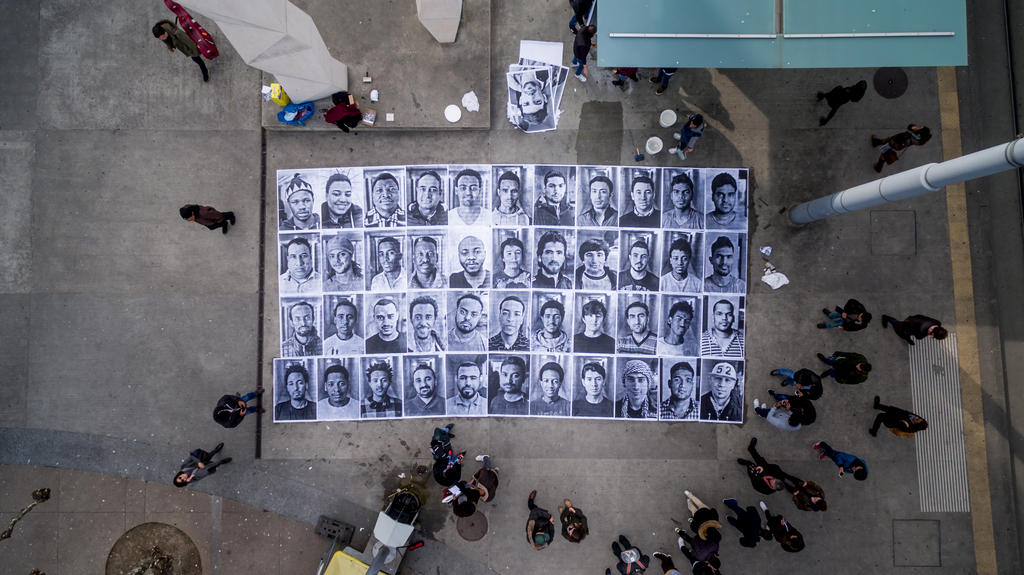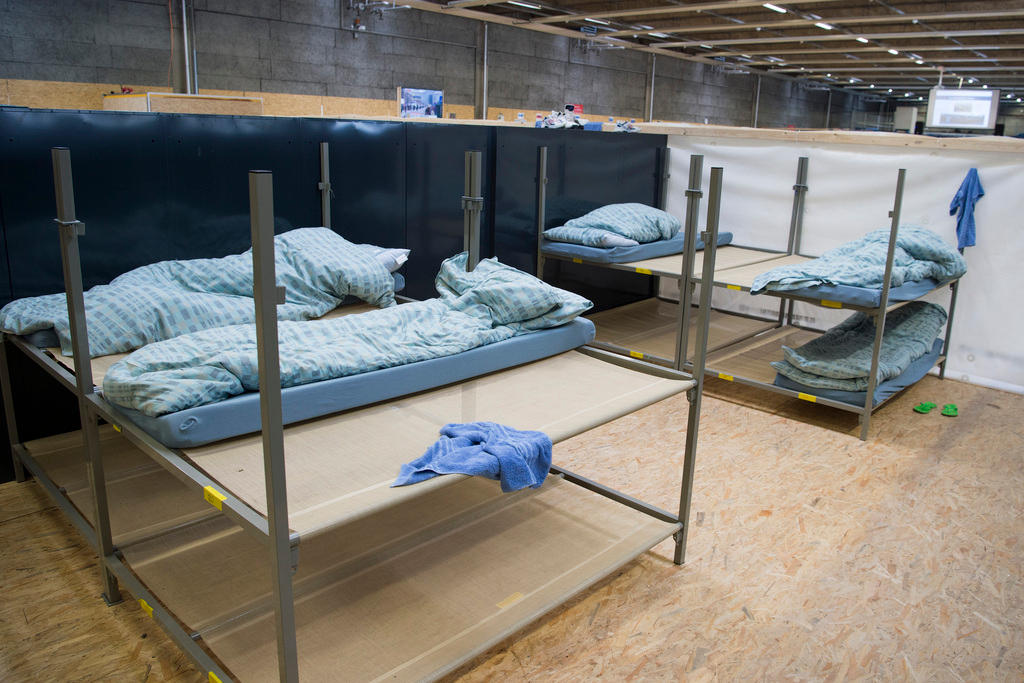Justice minister defends asylum reforms as EU leader takes interest

Europe has taken an interest in Switzerland’s asylum reforms, with a European Union leader examining the system which will soon put to a vote before the Swiss people. The Swiss justice minister has also reiterated her support for the reforms.
Following his tour of a new asylum facility in Zurich on Friday, Jean Asselborn, the Foreign Minister of Luxembourg and a representative of the Council of the European Union, said that “maybe this unique system could be implemented in the rest of Europe based on the initiative taken here in Zurich”, should the 28-member EU come up with a common approach to asylum.
The Zurich centre includes all elements of the asylum process, from lodging to legal counsel, under one roof in order to accelerate the decision process.
Minister defends reforms
Swiss Justice Minister Simonetta Sommaruga, who led Asselborn’s tour of the centre, expressed her support for Switzerland’s asylum system reform in the Sunday edition of the Blick newspaper.
“If there is any common ground in asylum politics, then it is the fact that fast decision processes are better than slow ones,” she said.
Swiss voters will weigh in on the asylum policy reforms on June 5. In addition to faster decisions on whether asylum seekers can stay in Switzerland, the new law would provide each asylum seeker with free legal counsel and foresees the construction of more centres like the one in Zurich.
Those opposed to the asylum reforms, in particular the conservative right Swiss People’s Party, argue that giving every asylum seeker a free lawyer is too generous and that the law would allow the government to seize private and community land to build new asylum centres.
In response to those issues, Sommaruga told the Blick that although they are allowed for in the law in order to keep building permits from being continually delayed, land seizures will probably not happen in reality.
“The military, which has had the option of such seizures for 20 years, has never made use of it,” she said, also arguing that the federal government, cantons and communes had a track record of working together on land issues for asylum centres.
“The existing locations for new asylum centres were proposed to us by the cantons,” she added.
In response to the question of giving asylum seekers free legal counsel, Sommaruga said that “if we want to make asylum decisions more quickly, they need to be good quality. Otherwise many will end up before the courts [and take longer]”.
A federal report published on March 14 concluded that Switzerland’s experiment with fast-track asylum procedures are a big success, and recommended making the changes to the federal asylum centres on a permanent basis. It has based its conclusions on experiences from the Zurich pilot project.
Swiss-EU discussions held
Sommaruga and Asselborn, who also holds the migration mandate, also held talks. High on the agenda was the migration crisis affecting Europe, as well as the implementation of the anti-immigration initiative, voted in February 2014, which imposes limits on the number of EU workers coming to Switzerland.
This has put Switzerland at loggerheads with the EU, because curbing immigration violates the free movement of people. Switzerland is not a member of the EU but has signed up to a package of bilateral accords with the body.

In compliance with the JTI standards
More: SWI swissinfo.ch certified by the Journalism Trust Initiative



You can find an overview of ongoing debates with our journalists here. Please join us!
If you want to start a conversation about a topic raised in this article or want to report factual errors, email us at english@swissinfo.ch.